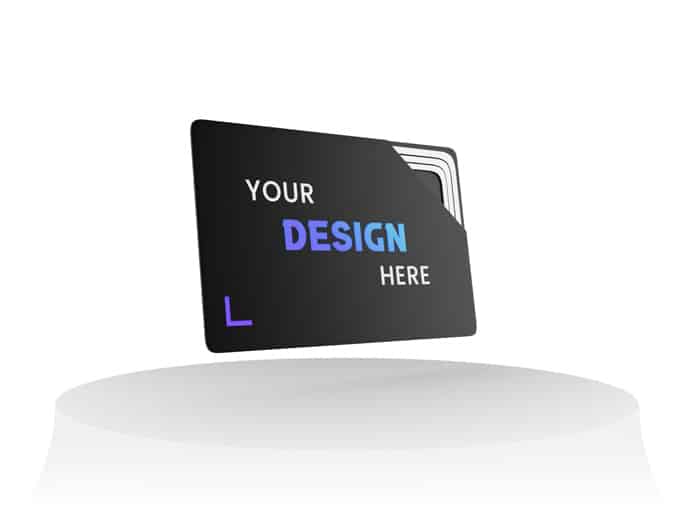
How to prepare for a job interview: Complete guide

A job interview is a crucial stage, for both recruiter and candidate. For the candidate, it’s an opportunity to stand out from the crowd, but also to enhance their profile and defend their qualities, both professional and personal.
To give yourself the best chance of landing the job of your dreams, VKARD has put together a practical guide to help you gain confidence and succeed in your job interview!
How to prepare?
To stack the odds in your favor, it’s important to be well-prepared for the interview. There are a number of tips you can use to help you do just that:
- Reread the job offer
- Find out about the company
- Identify the recruiter’s needs
- Prepare questions
- Pay attention to body language
The first step in preparing for an interview is to fully understand the position for which you are applying. To do this, it’s vital to identify the recruiter’s needs (skills required, qualifications, responsibilities, etc.).
To show the recruiter your interest in the position, don’t hesitate to find out more about the company before your interview. We advise you to consult the company’s web page and social networks to understand its values, ambitions and the products and/or services it offers!
We also advise you to ask questions! Your interviewer will be delighted to see that you’re interested in the company by asking questions about it, or about the position on offer.
Finally, it’s important to pay attention to the messages conveyed by your body language! Adopt a relaxed but professional posture, be yourself and avoid closed gestures (crossed arms, shifty eyes, trembling hands, etc.) You need to give the recruiter the impression that you’re at ease, without appearing too detached, at the risk of appearing uninterested.
Anticipate interview questions
To make a success of your interview, be prepared to answer the questions you’re going to be asked! Generally speaking, recruiters are looking to assess the way you present yourself.
Don’t hesitate to rehearse a short pitch at home to explain who you are and what you’re looking for in a job. We recommend using the elevator pitch method to present yourself in a relevant way, without wasting time!
Among the questions often asked in interviews are those focusing on the candidate’s professional ambitions:
- Where do you see yourself in 10 years?
- Are you ready to take on new responsibilities?
- What are your long-term ambitions?
But also about your strengths and weaknesses:
- Name three qualities and three weaknesses that characterize you;
- What is your resistance to stress?
These questions should appeal to your strategic mind! Avoid banal answers such as “I’m too much of a perfectionist”, which tend to annoy some recruiters. Be honest, but bold! Give preference to answers like: “I think I’m prone to stress in certain situations, but I work every day to remedy that. I use a method to better manage my time and avoid stressful situations.”
Avoid talking about a shortcoming without explaining what you’re doing to remedy it.
- Why you and not another candidate?
This question is often asked in interviews, and it’s a difficult one, since you need to know how to make the most of yourself without discrediting other candidates. We advise you to remain humble, with skilful answers such as: “I’m convinced that other candidates have similar skills, but I think that my previous experience and my motivation can be an added value for this position”.
Focus on the STAR method
The STAR method (Situation, Task, Action, Result) is a very popular way of getting through an interview. It helps you structure your answers, particularly when describing your past experience.
- Situation: define a context or problem
- Task: You need to explain the role you played in the situation.
- Action: In this step, you describe the actions you have taken.
- Result: Here you describe the results you achieved.
Here’s an example of how you can use the STAR method:
- Situation: “In my previous job, I had to deal with a very angry customer who had received a faulty product and demanded an immediate refund”.
- Task: “As store manager, I had to reassure the customer and find a solution to his problem”.
- Action: “I listened to the customer without interrupting, apologized for the inconvenience and offered a suitable solution: a full refund for the faulty product”.
- Result: “The customer left satisfied with the efficiency of customer service”.
Making a good impression
At an interview, the first impression is often the right one! So it’s important to make a good impression on your recruiter from the very first seconds of the interview. To do this, use simple but effective tricks!
- Respect schedules: Punctuality is a quality much appreciated by recruiters! You’ll make a bad impression if you arrive several minutes after the appointment time. To make sure you don’t get caught out, we recommend arriving at least 10 minutes early.
- Take care of your appearance: For your interview, adapt your dress to the company’s policy. If you’re applying to work for a luxury company, for example, make sure you take particular care with your attire and always opt for something professional and appropriate.
- Take documents with you: If the position you’re applying for lends itself to it, remember to bring paper documents with you, like a portfolio to present your various projects, for example. And don’t forget to take notes – it’ll show you’re interested and organized!
Thank the recruiter for his or her time
It may seem trivial, but thanking the recruiter for their time is a sign of respect that shouldn’t be overlooked. You can also send an e-mail to the recruiter to thank him/her for your exchange.
A successful job interview is all about controlling stress and putting yourself forward, while remaining humble! By preparing for your interview in advance, you’ll put all the chances on your side to win over the recruiter and get the job you’re applying for!
Written by Camille BODET
The digital business card is a real ally for professionals wishing to promote their business effectively and instantly. In the...Lire la suite
VKARD is an innovative and effective solution to help all professionals stand out from the crowd and reinforce their brand...Lire la suite
If you prepare properly for a job interview, you'll have every chance of winning over the recruiter and getting the...Lire la suite
LinkedIn is a world-renowned business platform, and for good reason! Thanks to its many networking options, LinkedIn is the tool...Lire la suite
Find out how Leexi AI optimizes the management of videoconferences and business calls, saving time and improving efficiency.
In the professional sphere, it's vital to know how to convey certain strong values in order to stand out and...Lire la suite
Mastering the art of conversation is a real asset! By mastering the subtle art of conversation, you'll be able to...Lire la suite
Are you taking part in a trade event and want to do everything you can to make a good impression?...Lire la suite
CRM (Customer Relationship Management) represents a genuine corporate strategy for managing business contacts. This popular tool for professionals is in...Lire la suite
At a time when the professional world is in a perpetual state of competition, we might wonder what place altruism,...Lire la suite















